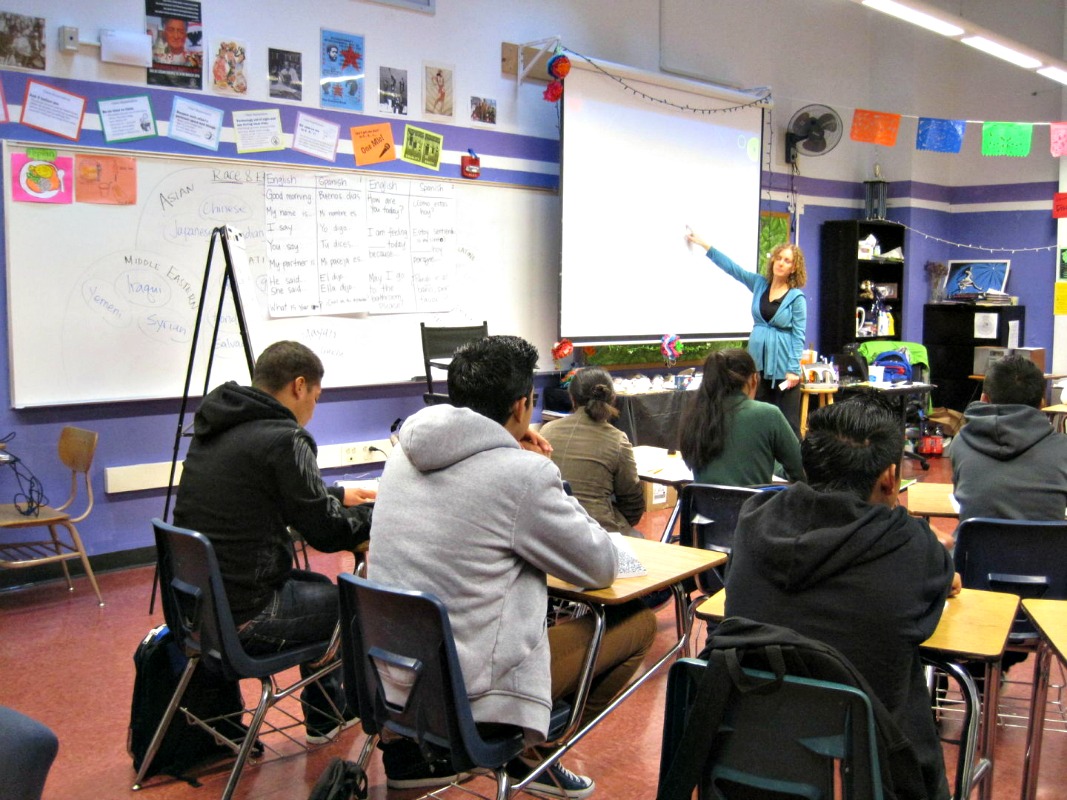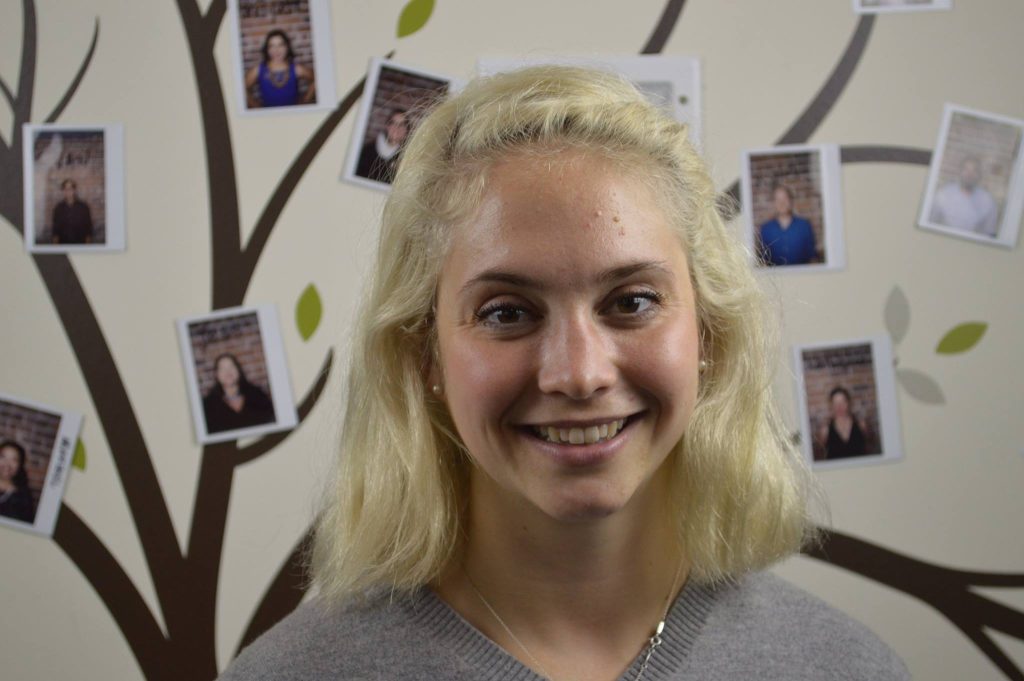Opinion
OP-ED: Oakland’s New Teachers Need Your Support

By Hannah Lukanuski
My first day of teaching fourth grade was two years ago and it was a whirlwind of energetic joy and panicked mistakes.
Luckily, I was at a school that anticipated and addressed the challenges I faced as a new teacher. I received almost daily observation and feedback from my principal, was coached on classroom management, and had time during the week to collaboratively plan lessons with my grade level team.
These resources both alleviated my first-year teaching anxiety and improved my classroom practices quickly.
Allocating resources towards supporting new teachers demonstrated our school’s commitment to equitable student experiences and outcomes.
Since Oakland shares that commitment, it should ensure that all first year teachers have that same degree of support. Right now, new teacher experiences differ greatly across the district; many new teachers have no access to coaches and infrequent opportunities for feedback from instructional leaders.
This is especially unfair to the new teachers who are overwhelmingly concentrated at schools in the highest needs areas of Oakland, where students need teachers who are supported and developed from day one.
One out of five Oakland teachers are in their first or second years of teaching. It is therefore imperative that Oakland Unified School District prioritize our needs.
Better and more consistent support for new teachers would improve instruction in a significant portion of Oakland classrooms, improving the academic outcomes of students in those spaces.
It would also reduce teacher turnover, which burdens students, staff, and school administrations.
As the teacher contract negotiations between the Oakland Education Association and the district begin, we must continue to push for new teacher support to be included in the renegotiated contract.
As a Teacher Policy Fellow at GO Public Schools Oakland, I worked with a group of Oakland teachers to research and recommend policies to improve new teacher support and teacher leadership opportunities in Oakland.
We recommend that new teachers are provided with meaningful and effective mentorship, that the district and schools align their expectations and support mechanisms for new teachers, and that the district invest in schools with high percentages of new teachers on staff.
I am excited to see our recommendations reflected in the Oakland Education Association’s initial proposals for the new contract.
The union has proposed adding a baseline of support for new teachers, and for the first time, included guidelines to ensure teacher leadership positions are clearly defined, accessible to all teachers, and properly compensated.
These items are key to ensuring equitable supports for new teachers around the city and improving student achievement.
Prioritizing meaningful mentorship, aligned supports, and equitably allocated resources would make a difference not only for new teachers, but more importantly for Oakland students.
As negotiations for the new teacher contract move forward, please support new teachers and equity in Oakland classrooms by contacting your school board representative at boe@ousd.org
 Hannah Lukanuski is a teacher at Garfield Elementary School and Teacher Policy Fellow at GO Public Schools Oakland. For information go to www.gopublicschoolsoakland.org
Hannah Lukanuski is a teacher at Garfield Elementary School and Teacher Policy Fellow at GO Public Schools Oakland. For information go to www.gopublicschoolsoakland.org
Activism
Oakland Post: Week of December 25 – 31, 2024
The printed Weekly Edition of the Oakland Post: Week of December 25 – 31, 2024

To enlarge your view of this issue, use the slider, magnifying glass icon or full page icon in the lower right corner of the browser window. ![]()
Activism
OPINION: “My Girl,” The Temptations, and Nikki Giovanni
Giovanni was probably one of the most famous young African American women in the 1960s, known for her fiery poetry. But even that description is tame. The New York Times obit headline practically buried her historical impact: “Nikki Giovanni, Poet Who Wrote of Black Joy, Dies at 81.” That doesn’t begin to touch the fire of Giovanni’s work through her lifetime.

By Emil Guillermo
The Temptations, the harmonizing, singing dancing man-group of your OG youth, were on “The Today Show,” earlier this week.
There were some new members, no David Ruffin. But Otis Williams, 83, was there still crooning and preening, leading the group’s 60th anniversary performance of “My Girl.”
When I first heard “My Girl,” I got it.
I was 9 and had a crush on Julie Satterfield, with the braided ponytails in my catechism class. Unfortunately, she did not become my girl.
But that song was always a special bridge in my life. In college, I was a member of a practically all-White, all-male club that mirrored the demographics at that university. At the parties, the song of choice was “My Girl.”
Which is odd, because the party was 98% men.
The organization is a little better now, with women, people of color and LGBTQ+, but back in the 70s, the Tempts music was the only thing that integrated that club.
POETRY’S “MY GIRL”
The song’s anniversary took me by surprise. But not as much as the death of Nikki Giovanni.
Giovanni was probably one of the most famous young African American women in the 1960s, known for her fiery poetry. But even that description is tame.
The New York Times obit headline practically buried her historical impact: “Nikki Giovanni, Poet Who Wrote of Black Joy, Dies at 81.”
That doesn’t begin to touch the fire of Giovanni’s work through her lifetime.
I’ll always see her as the Black female voice that broke through the silence of good enough. In 1968, when cities were burning all across America, Giovanni was the militant female voice of a revolution.
Her “The True Import of Present Dialogue: Black vs. Negro,” is the historical record of racial anger as literature from the opening lines.
It reads profane and violent, shockingly so then. These days, it may seem tamer than rap music.
But it’s jarring and pulls no punches. It protests Vietnam, and what Black men were asked to do for their country.
“We kill in Viet Nam,” she wrote. “We kill for UN & NATO & SEATO & US.”
Written in 1968, it was a poem that spoke to the militancy and activism of the times. And she explained herself in a follow up, “My Poem.”
“I am 25 years old, Black female poet,” she wrote referring to her earlier controversial poem. “If they kill me. It won’t stop the revolution.”
Giovanni wrote more poetry and children’s books. She taught at Rutgers, then later Virginia Tech where she followed her fellow professor who would become her spouse, Virginia C. Fowler.
Since Giovanni’s death, I’ve read through her poetry, from what made her famous, to her later poems that revealed her humanity and compassion for all of life.
In “Allowables,” she writes of finding a spider on a book, then killing it.
And she scared me
And I smashed her
I don’t think
I’m allowed
To kill something
Because I am
Frightened
For Giovanni, her soul was in her poetry, and the revolution was her evolution.
About the Author
Emil Guillermo is a journalist, commentator, and solo performer. Join him at www.patreon.com/emilamok
Activism
In addition to his work with the NAACP, Rick Callender is the Chief Executive Officer (CEO) of Valley Water in San Jose. In that role, he oversees an integrated water resources system with functions that include managing the supply of clean, safe water; instituting flood protections; and handling environmental stewardship of waterways for Santa Clara County’s 1.9 million residents.

By Edward Henderson, California Black Media
Rick L. Callender holds multiple influential roles. He is the President of the California/Hawaii State Conference of the NAACP (Cal-HI NAACP) and serves on the National NAACP Board of Directors.
Under his leadership, Cal-HI NAACP operates 74 branches and youth units across the state to push initiatives focused on racial justice and equality.
In addition to his work with the NAACP, Callender is the Chief Executive Officer (CEO) of Valley Water in San Jose. In that role, he oversees an integrated water resources system with functions that include managing the supply of clean, safe water; instituting flood protections; and handling environmental stewardship of waterways for Santa Clara County’s 1.9 million residents.
Recently, California Black Media (CBM) interviewed Callender. He reflected on the organization’s accomplishments, challenges they have faced, lessons learned this year, and goals moving forward.
Responses have been edited for length and clarity.
Looking back at 2024, what stands out to you as your most important achievement and why?
One of the things I’m most proud of is the support of policy changes related to the Ebony Alert, which went into place this year. That legislation ensured that Black girls and missing Black women would have their own alert. Often, when they go missing you don’t hear about it for weeks later.
How did your leadership and investments contribute to improving the lives of Black Californians?
It’s not my leadership, it’s the NAACP’s leadership. We’ve helped with legal consultations. Often, when you have something that occurs to you, some people can’t afford a legal consultation. We’ve cleared that hurdle for folks, so they don’t have to worry about the fee.
What frustrated you the most over the last year?
The pullback of a commitment to our community and the pullback from corporations on financing DEI initiatives, equity and civil rights. People have tried to make DEI sound like a salacious word. When you see these funds disappear, it’s because people erroneously think that they promote racism.
What inspired you the most over the last year?
The resilience and the determination of our youth. The youth have always led — not only the civil rights movement — but they have been the ones who will always be willing to step up.
It’s seeing a new Black leadership step up and being able to continue to fight.
What is one lesson you learned in 2024 that will inform your decision-making next year?
This is one thing: we can’t get distracted. We have to stay focused.
In one word, what is the biggest challenge Black Californians face?
Equity. Put anything in front of the word equity, and that’s what we face, from educational equity, criminal justice equity. Equity as it deals with economics. And just being able to make sure that we have the access to do what we need to do.
What is the goal you want to achieve most in 2025?
Staying focused on organizing around elections – and winning.
-

 Activism4 weeks ago
Activism4 weeks agoOakland Post: Week of November 27 – December 3, 2024
-

 Activism2 weeks ago
Activism2 weeks agoButler, Lee Celebrate Passage of Bill to Honor Congresswoman Shirley Chisholm with Congressional Gold Medal
-

 Activism2 weeks ago
Activism2 weeks agoPost News Group to Host Second Town Hall on Racism, Hate Crimes
-

 Activism2 weeks ago
Activism2 weeks agoDelta Sigma Theta Alumnae Chapters Host World AIDS Day Event
-

 Business2 weeks ago
Business2 weeks agoLandlords Are Using AI to Raise Rents — And California Cities Are Leading the Pushback
-

 Activism3 weeks ago
Activism3 weeks agoOakland Post: Week of December 4 – 10, 2024
-

 Arts and Culture1 week ago
Arts and Culture1 week agoPromise Marks Performs Songs of Etta James in One-Woman Show, “A Sunday Kind of Love” at the Black Repertory Theater in Berkeley
-

 Activism2 weeks ago
Activism2 weeks agoOakland Post: Week of December 11 – 17, 2024

























































